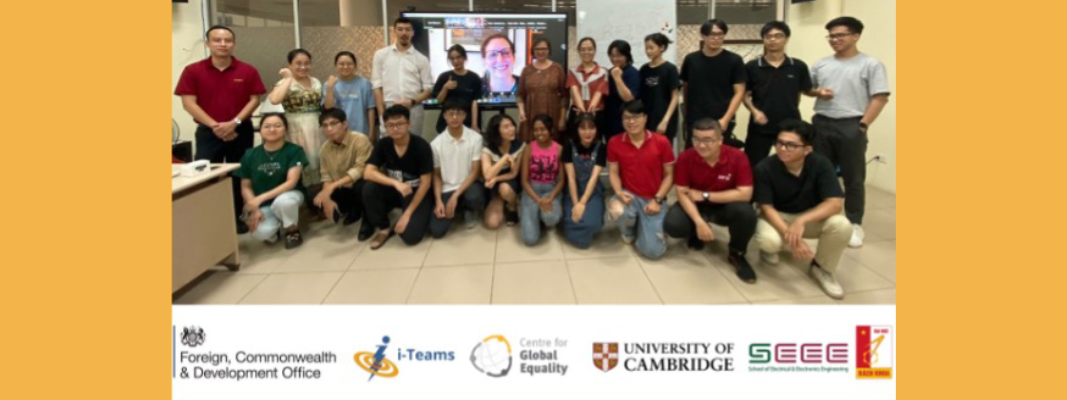
Submitted by S.A. Norwood on Mon, 22/01/2024 - 17:18
Image credit: Hanoi Institute of Science and Technology
Cambridge Development i-Teams are searching for early-stage engineering biology research projects with the potential to make a difference in people's lives.
Development i-Teams is an extra-curricular programme open to any Cambridge student which is run at the Institute for Manufacturing (IfM). Development i-Teams investigates the potential of cutting edge science and emerging technologies to enhance the wellbeing and economic development of low resource communities in developing countries. Teams of University of Cambridge students and post-doctoral researchers identify use cases in developing and emerging economies through discussion with sectoral experts and potential end-users. Findings generate new research projects and social enterprise projects and ventures supported in the CGE Cultivator.
Development i-Teams is run in partnership with the Centre for Global Equality, and is currently working on a two-year ASEAN i-Teams programme funded by the UK FCDO. A key focus of ASEAN i-Teams is the area of synthetic and engineering biology.
i-Teams is looking for research projects in the field of synthetic and engineering biology to investigate in the next round of applications, both in the Cambridge programme and in the ASEAN programme, specifically in Indonesia and Vietnam
|
Questions Development i-Teams can help you answer include:
|

